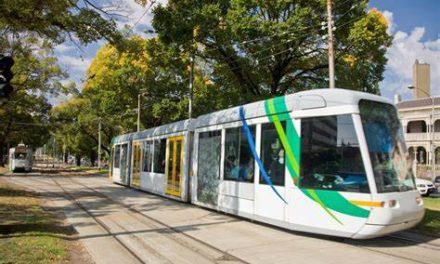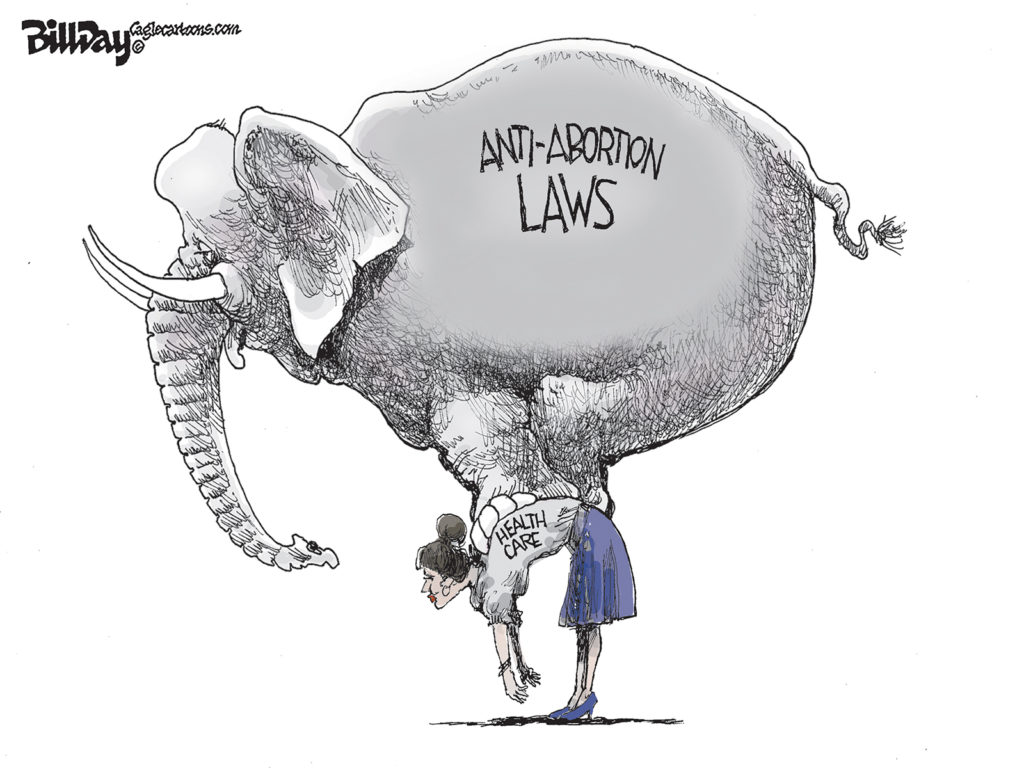Nothing is quite as confusing as government financing, and that’s never been truer than now.
There seems to be big numbers everywhere, and judging from public debate and comments on The Commercial Appeal articles, there is big, big confusion.
There are times when even insiders in government get confused by the blizzard of numbers, funding sources, legal, and potential uses. That’s why it’s no surprise that Letters to the Editor use operating and capital amounts as if they are interchangeable or suggest that money for The Fairgrounds could be spent on schools instead.
Of course, they can’t be.
So, let’s have a recap of the taxes that are most often in the news or in public discussions.
Here A Tax, There A Tax
First and foremost, there are property taxes paid by all Memphians who own real property. Both city and county governments have heavy dependency on property taxes, which is the largest single source of funds for city and county services (about half of the county’s property tax rate goes to schools).
There are sales taxes collected every time we make a purchase in Memphis – 7% of it goes directly to Nashville and the 2.25% local option sales tax stays here. Half of the local option sales tax goes to the general fund of City of Memphis government and the other half goes to public education.
Things get complicated outside of Memphis. In the unincorporated area of Shelby County, the local options sales tax is split between county government and public education. In the municipalities, 2.25% of the local option sales tax is split between the government of the town where it is collected and public education, but the .5% sales tax increase approved by voters in each of the municipalities goes to that town’s government which pledged that the increase would be appropriated to their town’s school district.
There are the hotel-motel taxes that are added to the bills for rooms in Memphis and Shelby County hotels. Shelby County Government has a hotel-motel tax of 5% and City of Memphis has a hotel-motel tax of 1.7%, so people staying in Memphis hotels pay an extra 6.7%. The county hotel-motel taxes are part of the sources of funds that pay for the bonds for FedExForum, and beginning in 2017, city hotel-motel taxes will do the same. In addition, the hotel-motel taxes fund the operations of Memphis Convention and Visitors Bureau.
Alphabet Soup
There’s the Tourism Development Zone (TDZ), one of which takes in most of downtown to pay for the Memphis Cook Convention Center and The Pyramid redevelopment and another zone is being proposed for the Fairgrounds area to fund the Fairgrounds redevelopment. In the TDZ district, the incremental increase in sales taxes (excluding .5% of the state sales tax for education) is collected and used to pay off bonds issued for a designated TDZ project. If we didn’t have these projects, the state sales taxes would instead go to Nashville and only about 25% of it would find its way back to Shelby County and most of it would be spent across the rest of Tennessee.
But it’s too simple to say that all increases in sales taxes go to the TDZ project, as some critics of the TDZ projects complain. Rather, once the baseline of present sales taxes is established, it is adjusted every year, which means that the baseline is increased by the percentage of growth for sales taxes countywide. It’s the amount above that threshold that is collected for the TDZ.
Another tax that captures incremental growth is Tax Increment Financing (TIF), but instead of sales taxes, it collects property taxes. TIF collects increases in city and county property taxes that take place following infrastructure improvements in a specified area. A baseline is set and anything above that baseline can be captured to pay for public improvements. Memphis has two TIF districts – one in Uptown and another for the Highland Row project. TIF is a financing vehicle used widely in Chicago and often in Nashville (which uses it instead of handing out tax freezes, or PILOTs).
The Payment-in-lieu-of-taxes (PILOT) program freezes property taxes at the amount of the unimproved property, and as the property is improved and its value increases, it continues to only pay taxes at the old unimproved appraisal amount. Memphis and Shelby County have handed out more tax freezes than all metropolitan areas of Tennessee combined for a total amount waived of about $100 million a year.
PILOTs are granted by the Industrial Development Board as an incentive for new jobs and business investment, and its program offers tax waivers of up to 90% of City of Memphis personal and real property taxes and up to 75% (25% is exempted for education) of Shelby County personal and property taxes for a maximum of 15 years. Center City Revenue Finance Corporation (part of the Downtown Memphis Commission) waives taxes for downtown projects, and as recently shown with a PILOT for 20 years for Sears Crosstown, it does not limit its tax freezes to 15 years.
And There’s More
There’s various incentives provided by the Center City Commission and funded from its special downtown tax and revenues.
There’s the state sales tax rebate that collects the sales taxes from the sale of tickets, concessions and merchandise at the games of professional sports teams. This funding was used as one of the sources of money to pay for the bonds at FedEx Forum and AutoZone Park. The tax rebate can only be spent to pay for professional sports facilities.
There’s the special rental car tax for vehicles rented at the airport and its proceeds are designated for FedExForum.
And these are just a few of the taxes collected and spent by our governments. Some taxes can only be spent for certain things – such as a convention center, the Fairgrounds redevelopment, an arena, or street improvements. As a result, they are not interchangeable, but as they have done here at The Pyramid and hopefully at AutoZone Park, they allow projects to proceed without using any property taxes.
As a result of the complexity of the tax system, it’s little wonder that people ask why can’t the money being spent at The Pyramid can’t be spent on schools, or fighting crime, or whatever.
It’s Not The Same
The same sort of argument was heard when the FedEx Forum was approved, but the truth is that the taxes being used to pay for both of these projects can’t be spent on education. By law, they can only be spent for specific projects like a public tourism-related facility or a professional sports team.
Even if they wanted, city and county governments could not legally redirect revenues paying for The Pyramid or FedExForum to schools, whose capital funding normally comes from county property taxes.
Or said another way, even if the state law did allow $100 million from these projects to schools, it would not be $100 for its operations. It would be more like $7 million, which is approximately the annual payment for $100 million in bonds.
In recent days, we read one commenter who said that the $15 million for Sears Crosstown should instead be spent for teachers’ salaries. But salaries are part of the operating budget for Shelby County Schools and the $15 million for Sears Crosstown were capital dollars. In other words, the $15 million in capital funds amount to about $1 million a year in bond costs. So even if the Sears Crosstown money was moved to schools, it wouldn’t be $15 million but would be $1 million.
Conventional Thinking
Totally confused?
Well, what about the suggestion about a new convention center?
It’s estimated to cost at least $500 million. Some ardent opponents of the cut in school funding immediately said that if city government could spend that much money on a convention center, it should give Memphis City Schools the $56 million that was cut.
Like The Pyramid (and FedEx Forum, for that matter), the funding sources that are available to pay for a new convention center – TDZ, TIF, and hotel-motel taxes – cannot be spent on schools.
Such is the intricacies of putting together the financing for major projects in city government, and because of the complexities, it’s next to impossible for the public to grasp the facts about big ticket projects, particularly the fact that Memphis, in spite of starting several marquee projects, is spending very little in city property tax funds. .





As I recall, the state designated convention center funding for the Pyramid, because of its proximity. So where could convention center money now come from?
The state added the Pyramid into the Convention Center TDZ, but since the Pyramid project should be self-supporting, the TDZ would still be one of the funding sources available for convention center.
Except the Pyramid/Bass Pro bonds prohibit using Downtown TDZ revenue on a new convention center. So even if a new convention center were self supporting, i.e. generated enough new sales taxes to pay the debt service and other costs, those new sales taxes could not be used for the new convention center.
When we decided to build FedEx Forum using hotel/motel taxes and rental car taxes and then Bass Pro using TDZ, I believe we effectively decided not to build a new convention center for 20 years because we’ve used up all the non-GO bond financial tools that could be used for a new convention center.
Thanks, Paul, for the clarification. We’re not sure that when the Forum was built, it was decided not to build a convention center for 20 years and we’ve always assumed that the city at some point would pursue the action which allows for TDZ adjustments. But if nothing is done, you are exactly right and we appreciate the comment.
Paul and/or SCM,
Interesting. Would the city be able to utilize TDZ funding to build a “new” convention facility as an expansion of an existing facility, be it either the existing convention center or the Forum?
Paul: We’ve checked with City Hall which has confirmed that our original post was correct.
Urbanut: We believe that to use the existing TDZ source of funds, the new convention center would need to be built where the existing convention center stands.